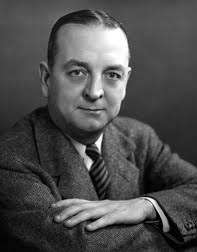A Quote by Benito Mussolini
Fascism entirely agrees with Mr. Maynard Keynes, despite the latter's prominent position as a Liberal. In fact, Mr. Keynes' excellent little book, The End of Laissez-Faire (1926) might, so far as it goes, serve as a useful introduction to fascist economics. There is scarcely anything to object to in it and there is much to applaud.
Related Quotes
Where did Keynes stand on overt fascism? From the scattered information now available, it should come as no surprise that Keynes was an enthusiastic advocate of the 'enterprising spirit' of Sir Oswald Mosley, the founder and leader of British fascism, in calling for a comprehensive 'national economic plan' in late 1930.
Wicksell's old-fashioned liberalism is reminiscent of John Maynard Keynes' attitude toward conscription during World War I. Keynes opposed conscription, but he was not a pacifist. He opposed conscription because it deprived the citizen of the right to decide for himself whether or not to join in the fight. Keynes was exempt as a civil servant from conscription; so there is no need to question his sincerity. Apparently his belief in the rights of the individual against a majority of his compatriots was very strong indeed.
His [Pitt's] successor as prime minister was Mr. Addington, who was a friend of Mr. Pitt, just as Mr. Pitt was a friend of Mr. Addington; but their respective friends were each other's enemies. Mr. Fox, who was Mr. Pitt's enemy (although many of his friends were Mr. Pitt's friends), had always stood uncompromisingly for peace with France and held dangerously liberal opinions; nevertheless, in 1804, Mr. Fox and Mr. Pitt got together to overthrow Mr. Pitt's friend Mr. Addington, who was pushing the war effort with insufficient vigor.
For centuries, economic thinkers, from Adam Smith to John Maynard Keynes, have tried to identify the elusive formula that makes some countries more prosperous and successful than others. My curiosity about this topic spurred me, as a young professor of economics in the late 1970s, to research new ways of measuring national competitiveness.
Only someone as puffed up and demented as John Maynard Keynes, every left wing fascist's sainted mentor in this connection, could manage to convince himself that taxing America's Productive Class can restore it to prosperity. In point of fact, it's like screwing for chastity, guzzling alcohol for sobriety, or gorging to fight gluttony. It's like killing indiscriminately for peace - oops, Democrats, Republicans and their moral and spiritual ilk have devoutly believed that particular bit of perverse nonsense since at least the War of 1812.
Keynes was a great economist. In every discipline, progress comes from people who make hypotheses, most of which turn out to be wrong, but all of which ultimately point to the right answer. Now Keynes, in 'The General Theory of Employment, Interest and Money,' set forth a hypothesis which was a beautiful one, and it really altered the shape of economics. But it turned out that it was a wrong hypothesis. That doesn't mean that he wasn't a great man!
The idea of confidence, of the emotions of the population, is an incredibly important one in economics. John Maynard Keynes called it 'animal spirit.' And if people are feeling generally good about the future, they're more likely to spend money, to start new companies; companies are more likely to hire people, make investments.
Fossil fuel is very seductive stuff. [John Maynard] Keynes once said that, as far as he could tell, the average standard of living from the beginning of human history to the middle of the eighteenth century had perhaps doubled. Not much had changed, and then we found coal and gas and oil and everything changed. We're reaping the result of that, both ecologically and socially.
One of the most important skills of the economist, therefore, is that of simplification of the model. Two important methods of simplification have been developed by economists. One is the method of partial equilibrium analysis (or microeconomics), generally associated with the name of Alfred Marshall and the other is the method of aggregation (or macro-economics), associated with the name of John Maynard Keynes.


































